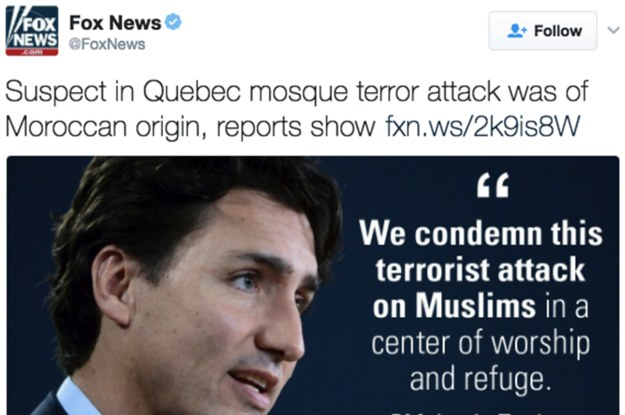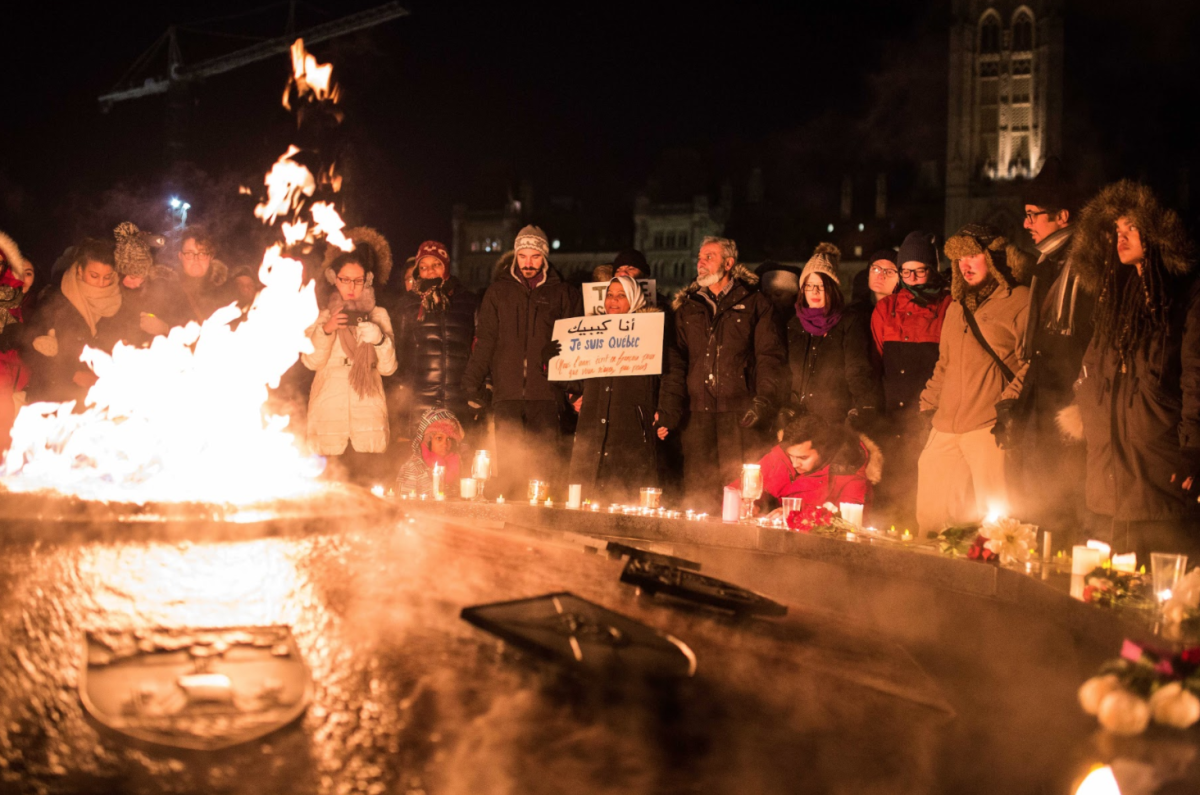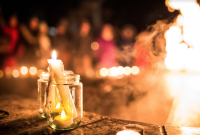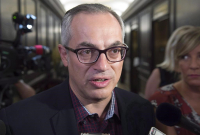Support strong Canadian climate journalism for 2025
The suburban hotel ballroom was packed with more than 400 conservative activists, college students and curious reporters. On stage, a bespectacled Calgarian was railing against what he called the “fascist theocracy” of militant Islam. This was in Sainte-Foy, Que., but the crowd didn’t seem to mind that he was speaking English. They laughed, cheered and applauded throughout his speech.
That’s how I first met Ezra Levant. It was October 2010 and I was covering the launch of Réseau Liberté-Québec for CTV. The “Quebec Freedom Network,” which claimed inspiration from the U.S. Tea Party movement, aimed to boost right-wing politics in a province traditionally dominated by the debate between sovereignty and federalism.
Levant was still months away from launching his show on Sun News Network, which preceded his current project, TheRebel.media. Back in 2010, Stephen Harper was the leader of a minority government. Donald Trump was still hosting The Apprentice on NBC. Just down the road from the hotel in Sainte-Foy, it would be another six years before the boom of rifle fire cut short the evening prayer at the Centre Culturel Islamique de Québec.
A terrible mistake
I lived in Montreal and Quebec City from 2007 to 2011 as controversy deepened over “reasonable accommodation,” then “religious symbols” – both polite ways of talking about Islam. I watched columnist Richard Martineau wear a burqa on television and listened as talk radio hosts whipped up fears around honour killings, sharia law and terrorism.
Last month when news of a mass shooting at a mosque splashed across my TV, I felt horrified – but not entirely surprised. As it turned out, police arrested a young man named Alexandre Bissonnette whom former classmates described as a pro-Trump, anti-immigrant Internet troll.
But police also arrested a Laval University student of Moroccan descent, who later told reporters he had been shoveling snow outside the mosque when the attack began. Released in the morning, police took pains to stress that Mohamed Belkhadir was a witness, not a suspect – but it was too late.

Hours after Belkhadir had been freed, social media users, news outlets and even the Trump administration were still using his arrest to feed a narrative about violence by immigrants.
“It’s a terrible reminder of why we must remain vigilant, and why the president is taking steps to be proactive, rather than reactive, when it comes to our nation’s safety and security,” said White House press secretary Sean Spicer, amid pitched debate over the administration’s travel ban.
The same morning, Ezra Levant’s Rebel Media launched the website QuebecTerror.com and began to solicit donations. “What’s going on here? What are the facts?” asked the crowdfunding pitch. “Can we trust the mainstream media to tell us the truth about such a controversial and sensitive subject?” A video crew was dispatched to Quebec City to “uncover the truth.”
Levant defends Rebel coverage
“Quebec has become home to a lot of radicalization,” reported video host Faith Goldy from outside the bloodstained mosque. “There are several teens that have fled the province and are understood to be fighting with the Islamic State in Syria.” Goldy then drew a link to a supposed “rivalry” with another mosque. Her video was uploaded to YouTube, where The Rebel boasts more than 580,000 subscribers.
“Canadians can make up their minds as to whether our reports are relevant or not,” Levant told me in response to questions sent by email last week.
Police, he points out, held a formal press conference announcing the arrest of two suspects. “Several hours later, they changed their minds. I think that surprising about-face, and the PMO’s bizarre demand that journalists delete contemporaneous reports of the police’s first statements, deserves more journalistic inquiry,” said Levant. “But I don’t dispute the latest official version.”
I wrote back: “Is it important for The Rebel to base its independent journalism on facts?” “Of course,” he replied. “And to ask who-what-why-where-when-how questions about those facts. Like what is the explanation for the eyewitness account of someone shouting Allah Akbar?” Levant continued: “Normally journalists ask questions like those before trial. But in this case, the needs of the political-media narrative about Islamophobia took precedence.”
Levant and Goldy were both speakers at a rally in Toronto last week organized by The Rebel to protest a motion by Liberal MP Iqra Khalid, which calls on the government to “condemn Islamophobia."
More lies from the White House
The Friday following the attack, I attended a public funeral for three of the victims in Quebec City’s cavernous convention centre. During the ceremony religious leaders, diplomats and politicians worked together to weave a common message about tolerance and inclusion. “It falls on us to defend the values that are important to us,” said Prime Minister Justin Trudeau in a speech.
The same morning, White House counselor Kellyanne Conway went on live TV and talked about a terrorist attack that never happened. She called it “the Bowling Green Massacre”. Challenged by reporters, Conway later backed down, saying she “misspoke”. But soon the president upped the ante, accusing journalists of ignoring terrorism.
“It’s gotten to a point where it’s not even being reported,” said Trump. “And in many cases the very, very dishonest press doesn’t want to report it. They have their reasons, and you understand that.” Trump has yet to publicly acknowledge the shooting in Quebec City, which claimed six lives.
This past weekend he referred to another supposed incident in Sweden. “You look at what’s happening in Sweden,” he said at a rally in Florida. “They took in large numbers. They’re having problems like they never thought possible.” Hundreds of journalists around the world then had to clarify that nothing of note had happened recently in Sweden.
It might be funny, if fact-checking Trump weren’t such a Sisyphean task.
The resources expended by news outlets to correct, challenge or debunk the administration’s “alternative facts” far outweigh the effort it takes for the president to go on TV and invent new ones. This endless game of whack-a-mole proceeds while Trump undermines the media itself, belittling White House correspondents and branding outlets like the New York Times “fake news.”
Winning, winning, winning
The president’s lies and fabrications have caught progressives off guard, as it becomes clear that huge swathes of the U.S. electorate believe Trump rather than the reporters who cover him. His feud with the press is not a liability – it’s a powerful part of his brand.
“The only profession people despise more than politicians is journalists,” says Ezra Levant. “The joy that average Americans take in watching Trump abuse self-important journalists is something that can unite all of us.” Polling would appear to support that.
Gallup’s 2016 annual survey of Americans’ trust in the mass media found just 32 per cent of people have a “fair amount of trust and confidence” in newspapers, radio or TV outlets “to report the news fully, accurately and fairly”. The number drops to 14 per cent among Republicans.
Earlier this month, the same polling firm registered President Trump’s approval rating at 40 per cent.
Here in Canada the numbers aren’t as low, but the trajectory is startling. The Edelman Trust Barometer registered a 10 point drop over the last year in public trust toward both government and news media, which now sit at 43 and 45 per cent respectively. Thirty one per cent went so far as to agree that “the media” was to blame for the country’s problems.
At the same time, 49 per cent said they “never or rarely change their position on important social issues.” Fifty five per cent admitted to ignoring “people or organizations with whom they often disagree,” suggesting increased polarization, even disagreement over basic facts.
Stranger than fiction
This much I know firsthand: the bullet holes in the windows of the Grand Mosque of Quebec are real. I saw the caskets with my own eyes, talked to grieving members of the congregation, watched a kid cry who had lost his father. But to piece together the overall event – what happened that night, who the suspect is – I still rely on facts gathered by professional reporters. Most of us do.
That search for a shared truth is more fraught than ever. Journalism faces huge challenges already as audiences scatter, revenues drop and resources for in-depth coverage melts away. Now the fourth estate is facing a frontal assault by the most powerful public office holder on the planet, while not-quite-news sites chew into the market.
However you classify The Rebel, it is one of Canada’s fastest-growing media brands, providing a home to hundreds of thousands of viewers fed up with legacy news outlets.
On this side of the border those voters are waiting for a political vehicle to channel their anger, to accelerate the dismantling of what they see as a misguided liberal cultural and economic consensus. In that context, last month’s mosque attack can be seen as a test case for challenging what Levant called the “political-media narrative.”
One of the speakers who joined Levant on stage that day in Sainte-Foy back in 2010 was Maxime Bernier, now vying for the leadership of the Conservative Party. At The Rebel’s “Freedom Rally” last week in Toronto, four other Conservative candidates hopped on stage, including Kellie Leitch, Chris Alexander, Pierre Lemieux, and Brad Trost. These are not fringe characters. One of them may be chosen leader of the Opposition come May.
In the meantime, two things are likely: public trust in institutions will continue to crumble, and confusion over what is real will grow. Politicians who tap into both trends may be in a position to deliver big surprises.







Comments
This is essential information, particularly all the details concerning the rise of Tea Party look alikes in Quebec since 2010. And to be fair, main stream media should have been reporting it more thoroughly. Ezra Lavant's role in stirring up disenchanted folks on the margins should be covered as well.........too few of us even know about the Rebel Media site; fewer still in the mainstream have visited it.
I had that experience when reading Sandra Jensen's speech in the Alberta legislature, in which she shared some of the sexist hate mail she'd received. By accident I scrolled right to the Rebel site.
What I read astounded me....the one liners, the rude comments standing nakedly alone without reason or evidence to support them, and the downright untruths commentators were sharing. Jensen had apparently committed 'treason' by crossing the floor to the New Democrats....quite a few opined she should be charged with same.
But the good news is, we can reply, share with them the truth. Given we are in the age of google, it was pretty simple to look up how many humans of the testosterone persuasion had crossed the floor since confederation....easier still to name names, Ralph Klein being among them.
My point is, many of the young people on Rebel aren't very informed. More of us who are should visit the site from time to time, and share a bit of reality with them. Hate thrives when Love and Honour fall asleep. Those of us who think we're on the side of the angels, need to get to work and demonstrate that alliance.
Sitting on our laurels hasn't got us to where we need to be. And while we're at it, we might inform Ezra's disaffected that it is the millionaires and billionaires like the Koch brothers...who mostly own the mainstream media. If it's slanting it's coverage, its slanting it in the interests of those boys....not our vulnerable immigrant population.........and certainly, not our young female politicians. So if they must hate something...why not pick on the 1%???
Possibly because Rebel Media and other right wing fringe groups are funded by that fraction of the human family??? But do the trolls know that, or should we be pointing it out to them? Seriously....honest respectful conversations can be a lot of fun....once we get our bums out of our churches of the converted and commit to talking to our most vulnerable populations. A lot of whom are likely on Rebel.
" Hate thrives when Love and Honour fall asleep." Beautifully said. Thank you.
I think you should check out on who "owns" the media in North America as well as who "runs" the media. You seem to indicate that the Koch brothers seem to have significant control, in other words, the Koch brothers (who are definitely radical right-wing, ultra conservative Republicans) own or run the media. From what I have read, there are only about 6 major owners of most of the media in NA. I think, if you look into their corporate holdings you will find that they are largely Democrats. Correct me if I'm wrong.
A bit of research finds that Postmedia and the Globe and Mail are owned or controlled by people who strongly supports the Conservatives. Postmedia CEO Paul Godfrey has been a huge Conservative supporter ( financial ) and his chain of newspapers almost told people to vote Harper. Same goes with the Thompson family who owns the Globe and Mail. I don't know about State side. you could be right.
Trudeau's behavior is not okay! I feel if the media got together and unrelentingly helped Canadians, then we would trust you. Trudeau is in office because he said he would change the Electoral System! He promised 1013 times! Seriously, this was not an off the cuff remark, RIGHT? Rebel Media is the only source I can find that's covering the fact that Selfies aren't the answer.
Here in Alberta those "voters waiting for a political vehicle to channel their anger" may help elect Jason Kenney as leader of some combination of PC and Wildrose members. We need to work hard to make sure they don't prevent a second NDP term in Alberta.
The NDP government in Alberta are conservatives in almost everything but name. Between gifts to polluters, nonsense climate change plan, caging caribou, wildlife slaughter, etc, they have been worse than the Conservatives. The $15 minimum wage is the only anomaly I can think of. I voted NDP and was ecstatic when they won. In return, they betrayed voters, destroyed all provincial NDP credibility and any hope of being re-elected. A democracy with more input than Election Day would make all the difference.
Trump commented 'look at what's happening in Sweden' and 'the press' right away assumed he was referring to an isolated incident and went after him for it... even today the Observer runs a story on it when, in fact, Sweden IS having major and ongoing issues with immigrants...a REAL story they and many others are turning their backs on. We don't need 'spun' stories...just the facts... don't become another CNN...
Thank you for your feedback, Greg. I don't remember us publishing a story on Sweden, but you may be right. Can you be more specific about what you're referring to?
Thank you for an excellent article - I do my utmost to promote good journalism like the National Observer to which I subscribe and to spread the knowledge that if we want to have good information it cannot be "free". Keep up the good work.
Thank you, Teresa. We wouldn't be publishing if it weren't for subscribers like you.
Ezra Larant, it seems, is another pitchman for the Koch brothers whose task it is to insure their investment in the Athabasca Tar Sands (of which the Koch brothers have leases for millions of acres). There is this methodology that appears to take the form of instilling acceptance of 'Canadian Values' and ‘buy Canadian’ through the seemingly denigration of the populations of oil rich countries in the Middle East, most of which, have tyrannical leaders installed or supported by the West to ensure the supply of oil, prior to the advent of fracking technology and the materialization of capital to develop the Athabasca Tar Sands.
The fact that innocent people become the victims of politics, past and present, and are shot and die in the process of this denigration is feedback that the rhetorical ‘spin’ is working for them. And the followers? Ignorance breeds stupidity, hatred and death. Every barrel of tar sands product is subsidized by Steven Harper's (another Koch disciple) 'tax' coming out of your wallet (that JT continues to garner votes) but these associations are never a part of the troglodyte diatribe.
It's evident that the Conservatives have been taken over by the far right wing. Will Canada buy into this ideology. I hope not. But maybe. And with our voting system, this fringe element could take control. In Germany, the Canadian Conservatives would be a fringe party, and seats would be given according to the percentage of votes won. The far right wing in Germany is now at around 13%. Not enough to take control. In face, the Germans now see the far right as something disdainful. Trump, Penn, etc, are not popular and even the CDU ( the German Conservatives ) are seeing a backlash as the social democrats ( SPD ) are moving ahead in recent polling. But here in Canada, with our first past the post voting system, anything goes. If Trudeau keeps on losing ground then the far right wing just might win. Then we'll have our own Trump.
Thank you to Linda Solomon Wood for keeping on top of this very important issue.
When schools teach "creationism", brainwash with religious dogma and are allowed to claim that Evolution is A Theory, it can't be a surprise that people end up believing that they can pick and choose whether to "believe" in science. The mass-deception of Santa Clause is another bizarre (and trust destroying) lie. Allowing kids to grow up (and adults to become) osmosed with the Internet has consequences and I wonder if there isn't a cognitive issue preventing some from distinguishing reality from fantasy, comprehending facts, or even thinking of issues beyond themselves. It is astonishing how uninformed on issues and current events people are.
This "crumbling trust in our public institutions" thing, being unspecific, is easy to say and borders on meaningless. The Post Office? National Parks Staff? The Military? Waterworks and Sewer? The Road Pavers? The Police and Firemen? Hospitals? Has the Bureau of Weights and Measures changed the definition of "kilogram" ? Courts been taking bribes to decide cases? Are libraries preventing anti-racism books from being taken out?
The list of public institutions that are still reassuring and trusted is much, much longer than those that are not.